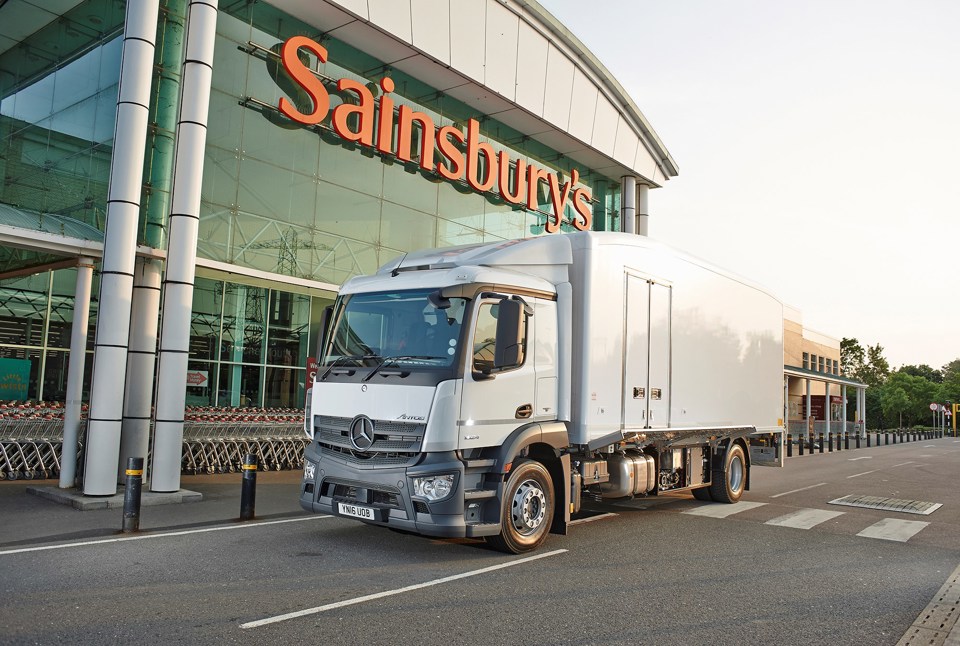Sainsbury’s has become the first company in the world to introduce a refrigerated delivery truck cooled by a liquid nitrogen powered engine, which will eliminate all emissions associated with refrigeration.
Supplied by cooling technology specialists Dearman and its partners, the zero-emission cooling unit replaces the traditional diesel engine used to chill the vehicle and will significantly cut emissions.
During the three-month trial the vehicle is estimated to save up to 1.6 tonnes of CO2, which is the equivalent of driving more than 14,500km in a modern family car.
The trial will also save 37kg of nitrogen oxides and 2kg of particulate matter, compared to a similar diesel system.
The truck will operate from Sainsbury’s Waltham Point depot, delivering chilled goods to stores in the London area.
The new system harnesses the rapid expansion of liquid nitrogen to deliver zero-emission power and cooling.
Traditionally many refrigerated trucks require two diesel engines, one to power the vehicle and one for the refrigeration unit.
By replacing the latter, Dearman believes that a more sustainable solution for refrigeration may soon be widely adopted on Britain’s roads.
Paul Crewe, head of sustainability for Sainsbury’s, said: “As one of Britain’s biggest retailers we really recognise the importance of reducing emissions, which is why we’re working hard to cut carbon emissions by 30% between 2005 and 2020.
"This trial with Dearman is just one of the innovations we’ve introduced to help us towards this goal."
The trial is the latest in a series of innovations from Sainsbury’s. Following a trial in 2013, it became the first company in the world to use CO2 as a natural refrigerant and has now taken on three trucks with cooling fueled by this method.
Furthermore, earlier this year the company introduced R-452A as a cooling agent in its transport and announced that all new fridges would run on this.
R-452A is recognised as a cleaner cooling agent and will help reduce emissions by 45%, compared to the R404A more commonly used. Assessment of the success of the trial will be considered, along with operational cost on any potential for roll out of the technology.

















Login to comment
Comments
No comments have been made yet.